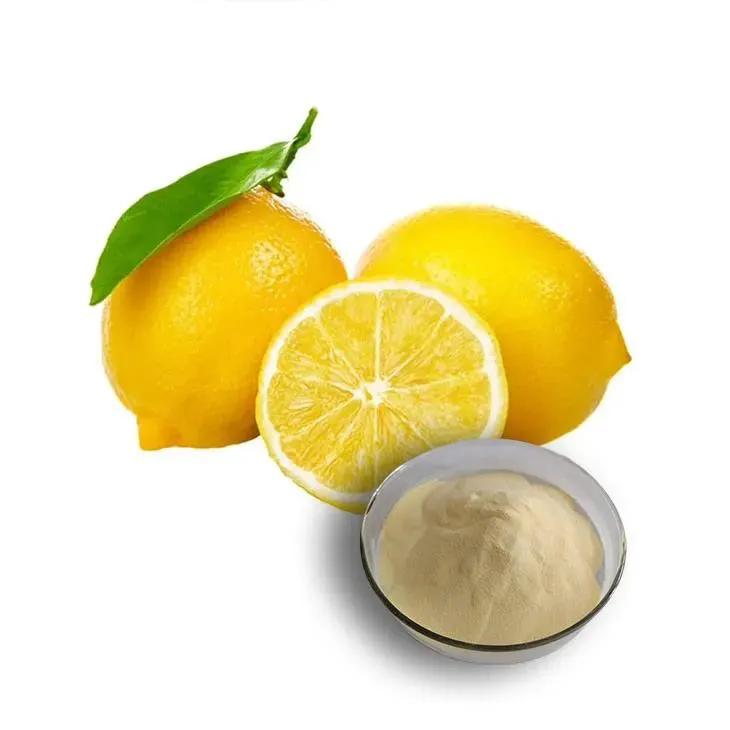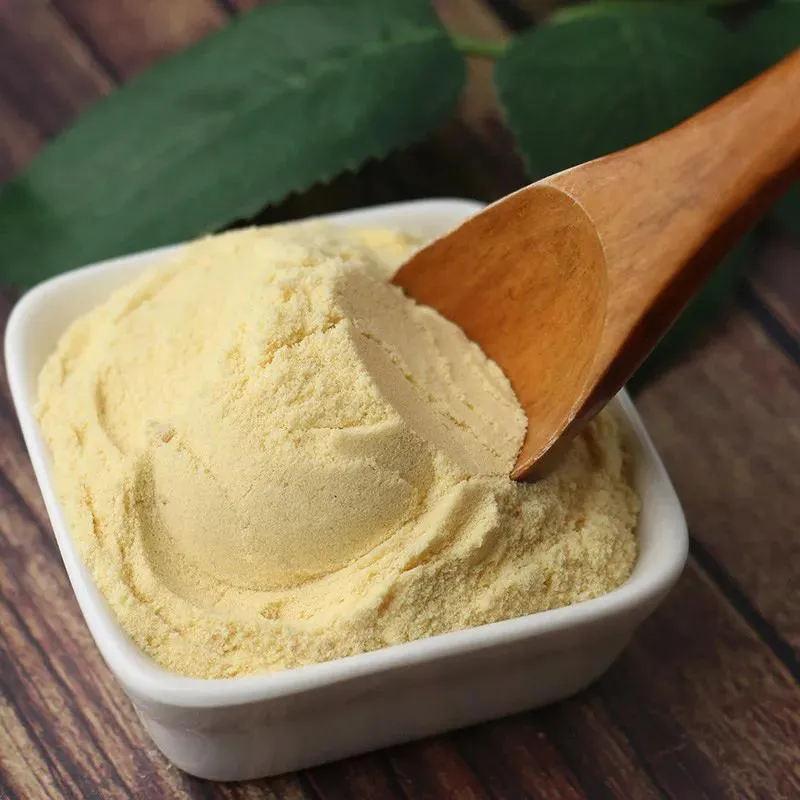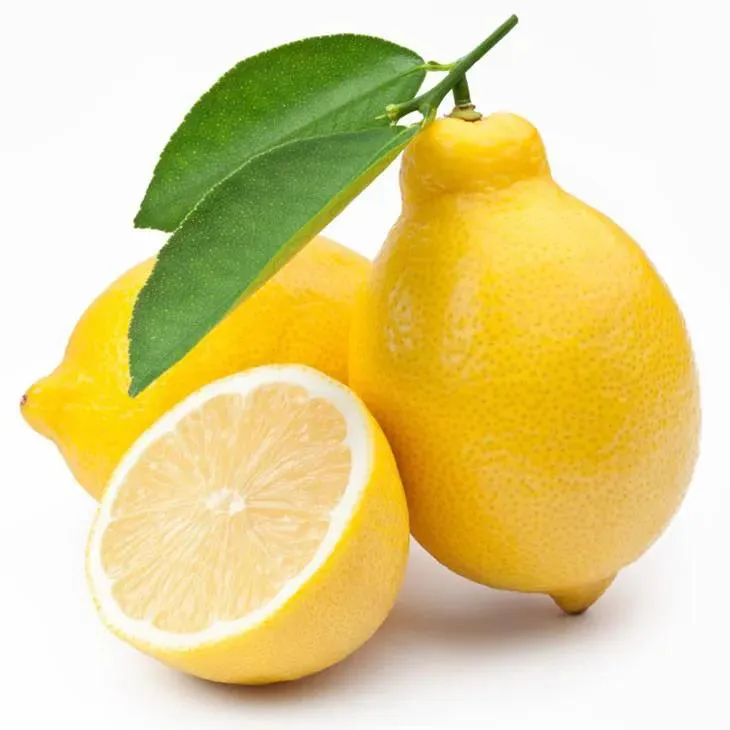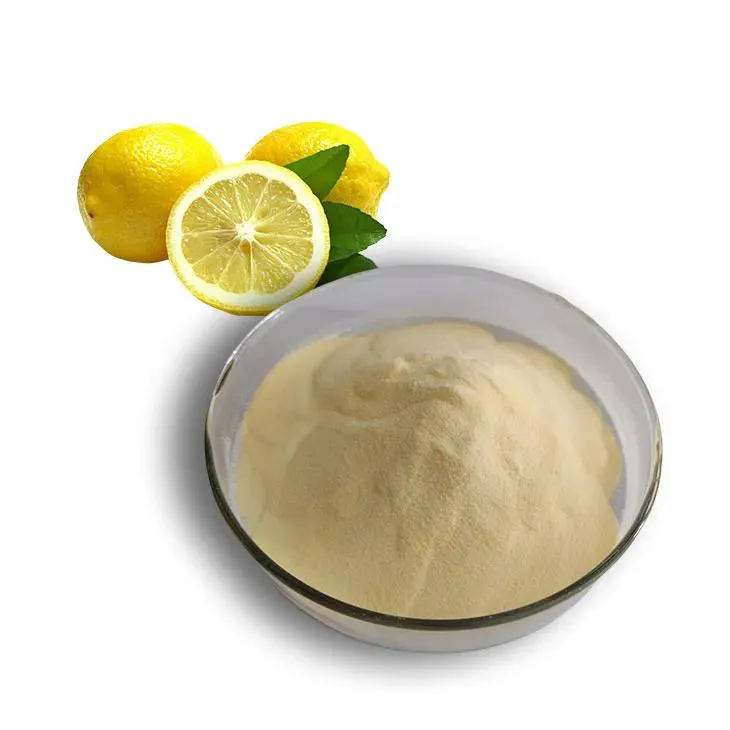- 0086-571-85302990
- sales@greenskybio.com
From Citrus to Powder: The Art of Lemon Juice Powder Production
2024-07-04

1. Introduction
Lemon Juice Powder has become an increasingly popular product in recent years. It offers a convenient alternative to fresh lemon juice, with a long shelf - life and ease of use in various applications such as food and beverage manufacturing, dietary supplements, and even in some cosmetic products. The process of transforming lemons into powder is a complex and fascinating one that involves multiple stages, each with its own significance.

2. The Importance of Raw Material Quality
2.1 Source of Lemons
The quality of the lemons used as the raw material is of utmost importance. Lemons sourced from different regions may vary in taste, acidity, and nutrient content. For example, lemons grown in the Mediterranean region are often known for their intense flavor and high acidity levels. These characteristics can significantly impact the final product's flavor profile.
2.2 Freshness and Ripeness
Only fresh and ripe lemons should be used in the production process. Ripe lemons contain the optimal amount of juice and nutrients. If the lemons are over - ripe, they may start to ferment, which can introduce unwanted flavors and spoilage. On the other hand, unripe lemons may lack the characteristic sourness and may have lower juice yields.

3. The Production Process
3.1 Juice Extraction
- The first step in the production of Lemon Juice Powder is juice extraction. This can be done using mechanical presses. Modern presses are designed to extract the maximum amount of juice from the lemons while minimizing damage to the fruit pulp.
- After extraction, the juice may be filtered to remove any remaining pulp, seeds, and other solid particles. This results in a clear lemon juice that is ready for the next stage of processing.
3.2 Concentration
- The filtered lemon juice is then concentrated. This is typically achieved through evaporation. Heat is applied to the juice, causing the water content to evaporate, leaving behind a more concentrated lemon juice.
- There are different methods of evaporation, such as vacuum evaporation. Vacuum evaporation is preferred in many cases as it allows for lower - temperature processing, which helps to preserve the natural flavor and nutrients of the lemon juice.
3.3 Drying
- Once the lemon juice has been concentrated, it is ready for drying. Spray drying is one of the most commonly used methods in the production of Lemon Juice Powder.
- In spray drying, the concentrated lemon juice is atomized into a fine mist and sprayed into a hot drying chamber. The hot air in the chamber quickly evaporates the remaining water, leaving behind fine powder particles.
- Another drying method is freeze - drying. Freeze - drying involves freezing the concentrated lemon juice first and then subjecting it to a vacuum environment where the ice crystals sublime directly from the solid to the gas phase, leaving behind a dry powder. Freeze - dried lemon juice powder often retains more of the original flavor and nutrients compared to spray - dried powder, but it is also a more expensive process.

4. Modern Production Technologies
4.1 Advanced Filtration Systems
Modern production facilities use advanced filtration systems to ensure the purity of the lemon juice. These systems can remove even the tiniest of impurities, such as bacteria, mold spores, and fine particulate matter. For example, membrane filtration is becoming increasingly popular. Membrane filters have pores of a specific size that can selectively allow certain molecules to pass through while blocking others.
4.2 Precision Drying Equipment
- The drying equipment used in lemon juice powder production has also evolved. Precision drying equipment can control factors such as temperature, air flow, and drying time with a high degree of accuracy.
- This allows for consistent production of high - quality lemon juice powder. For example, some spray - drying machines are equipped with sensors that can monitor the moisture content of the powder in real - time and adjust the drying parameters accordingly.

5. Characteristics of the Final Product
5.1 Flavor and Aroma
High - quality lemon juice powder should retain the characteristic sour, fresh, and citrusy flavor and aroma of fresh lemons. The drying process, if done correctly, can preserve these qualities. However, any deviation in the production process, such as over - drying or exposure to high temperatures for too long, can lead to a loss of flavor and aroma.
5.2 Nutritional Content
- Lemon juice is rich in vitamin C, citric acid, and other beneficial compounds. The production process should aim to preserve as much of this nutritional content as possible.
- As mentioned earlier, freeze - drying may be more effective in retaining the nutritional content compared to spray - drying, but both methods can produce a product with significant nutritional value if properly executed.
5.3 Solubility
One of the important characteristics of lemon juice powder is its solubility. It should be easily soluble in water and other solvents, allowing it to be used in a wide range of applications. The particle size and the drying method can influence the solubility of the powder. For example, a powder with a finer particle size may be more soluble.
6. Environmental and Economic Aspects
6.1 Environmental Impact
- The production of lemon juice powder has both positive and negative environmental impacts. On the positive side, the long shelf - life of the powder reduces food waste compared to fresh lemon juice, which has a relatively short shelf - life.
- However, the production process, especially the drying process, may consume a significant amount of energy. Using more energy - efficient drying methods, such as vacuum evaporation and energy - efficient spray - drying or freeze - drying equipment, can help to reduce the environmental footprint.
6.2 Economic Considerations
- From an economic perspective, the production of lemon juice powder can be a lucrative business. The demand for the product is growing, driven by its convenience and versatility in various industries.
- The cost of production is influenced by factors such as the cost of raw materials (lemons), energy costs, and labor costs. Producers need to optimize their production processes to ensure cost - effectiveness while maintaining product quality.
7. Future Development
- There are several potential areas for future development in lemon juice powder production. One area is the improvement of production processes to further enhance the quality of the product. This could involve the development of new drying techniques or the refinement of existing filtration methods.
- Another area is the expansion of product applications. Currently, lemon juice powder is mainly used in food and beverage and dietary supplement industries. There is potential for its use in new areas such as pharmaceuticals or in the development of functional foods with enhanced health benefits.
- Research into the genetic modification of lemons to produce fruits with higher juice yields or better - suited characteristics for powder production could also be a future direction. However, this would need to be carefully managed to address any potential ethical and environmental concerns.
8. Conclusion
The production of lemon juice powder is a complex art that combines the careful selection of raw materials, the application of modern production technologies, and an understanding of the environmental and economic aspects. The final product has unique characteristics that make it a valuable ingredient in various industries. As the demand for convenient and long - lasting food and beverage ingredients continues to grow, the future of lemon juice powder production looks promising, with opportunities for further innovation and development.
FAQ:
What are the key factors in ensuring the quality of raw materials for lemon juice powder production?
The key factors include the freshness of lemons, their variety, and the absence of contaminants. Fresh lemons are essential as they provide the best flavor and nutrient content. Different lemon varieties may have varying levels of acidity and flavor profiles, which can affect the final product. Additionally, ensuring that the lemons are free from pesticides, dirt, and other impurities is crucial for high - quality lemon juice powder production.
What modern production technologies are commonly used in making lemon juice powder?
Some common modern technologies include spray drying and freeze - drying. Spray drying involves atomizing the lemon juice into a fine mist and then drying it in a hot air stream. This process is efficient and can produce a fine powder. Freeze - drying, on the other hand, first freezes the lemon juice and then removes the water through sublimation under low pressure. This method often retains more of the original flavor and nutrients of the lemon juice.
What are the main characteristics of the final lemon juice powder product?
The final product is typically a fine powder with a concentrated lemon flavor. It has a long shelf - life due to the removal of water, which inhibits the growth of microorganisms. Lemon juice powder also retains many of the nutrients present in fresh lemon juice, such as vitamin C. It is convenient for use in various applications, such as in the food and beverage industry for flavoring, or in dietary supplements.
How does lemon juice powder production impact the environment?
The production process can have both positive and negative environmental impacts. On the positive side, the long shelf - life of the powder can reduce food waste compared to fresh lemon juice. However, the energy consumption in drying processes, especially in some large - scale production using certain technologies like spray drying, can contribute to carbon emissions. Also, proper waste management from lemon processing, such as dealing with peel and other by - products, is important to minimize environmental pollution.
What are the economic aspects of lemon juice powder production?
Economically, lemon juice powder production can be a profitable venture. It allows for the value - addition of lemons, as the powder can be sold at a higher price per unit volume compared to fresh lemon juice. It also has the potential for wider market reach as it can be easily stored, transported, and incorporated into various products. However, the initial investment in production equipment and technology can be significant, and there are costs associated with ensuring quality control throughout the production process.
Related literature
- Lemon Juice Powder: Production and Applications"
- "The Science Behind Modern Lemon Juice Powder Manufacturing"
- "Economic Viability of Lemon Juice Powder Production in the Global Market"
- "Environmental Considerations in the Production of Citrus - Based Powders: A Focus on Lemon Juice Powder"
- ▶ Hesperidin
- ▶ Citrus Bioflavonoids
- ▶ Plant Extract
- ▶ lycopene
- ▶ Diosmin
- ▶ Grape seed extract
- ▶ Sea buckthorn Juice Powder
- ▶ Fruit Juice Powder
- ▶ Hops Extract
- ▶ Artichoke Extract
- ▶ Mushroom extract
- ▶ Astaxanthin
- ▶ Green Tea Extract
- ▶ Curcumin
- ▶ Horse Chestnut Extract
- ▶ Other Product
- ▶ Boswellia Serrata Extract
- ▶ Resveratrol
- ▶ Marigold Extract
- ▶ Grape Leaf Extract
- ▶ New Product
- ▶ Aminolevulinic acid
- ▶ Cranberry Extract
- ▶ Red Yeast Rice
- ▶ Red Wine Extract
-
Black Rice Extract
2024-07-04
-
Berberis aristata Extract
2024-07-04
-
Peppermint Extract Powder
2024-07-04
-
Aminolevulinic acid
2024-07-04
-
Thunder God Vine Extract
2024-07-04
-
Motherwort Extract
2024-07-04
-
Chaste Berry Extract
2024-07-04
-
Citrus Aurantium Extract
2024-07-04
-
Nettle Root Extract
2024-07-04
-
Pueraria Lobata Extract
2024-07-04





















